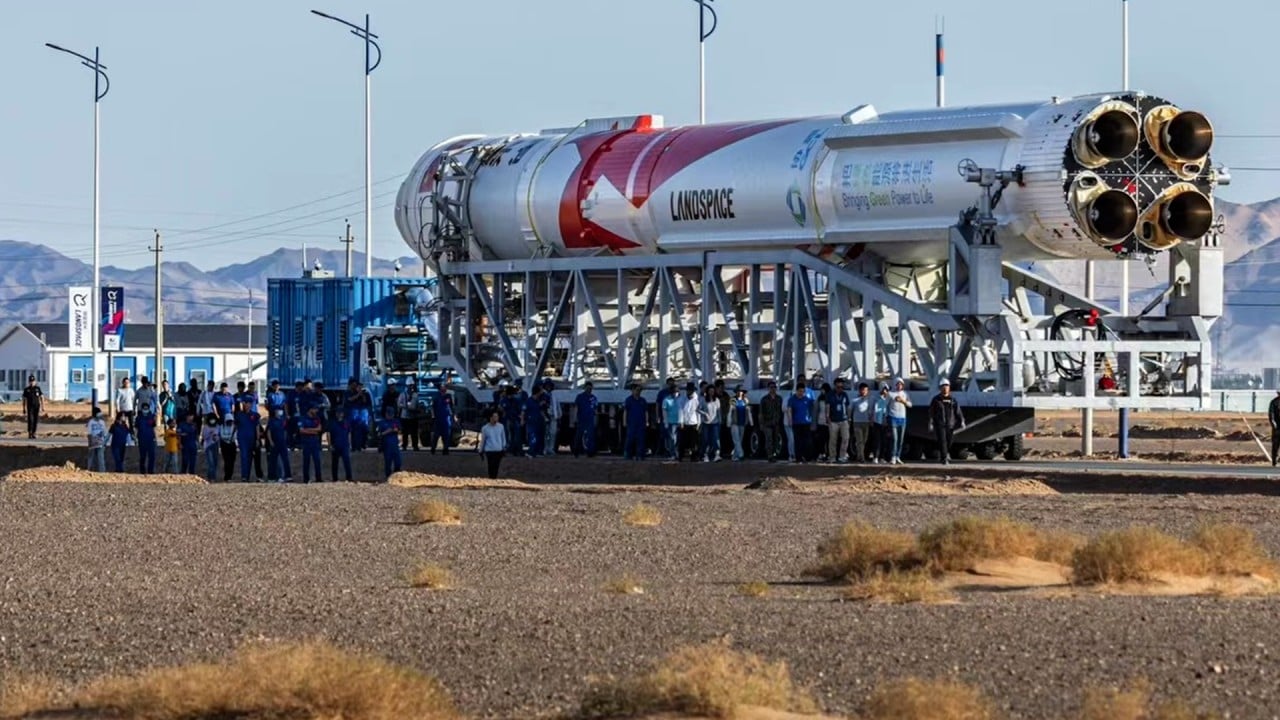Beijing-based company LandSpace set the stage for next year’s maiden flight of its reusable Zhuque-3 rocket with a 10km (6-mile) vertical take-off, vertical landing (VTVL) test in China’s Gobi Desert on Wednesday.
Advertisement
The 200-second test flight was also the first time engine reignition – a critical deceleration phase in rocket recovery – was tested in China, in what state broadcaster CCTV called a “breakthrough” for the country’s commercial space sector.
Dai Zheng, commander of the Zhuque-3 project, said the test validated in-flight engine cut-off and restart, as well as other key technologies including joint guidance and control, as well as precise landing.
The test marked a “crucial step” towards low-cost, high-frequency space launches, said Dai in the CCTV report. “We have verified these core technologies in advance, laying a solid foundation for the flight and recovery of the rocket.”
An engineer from the Zhuque-3 team, speaking anonymously to the South China Morning Post, said that Wednesday’s test – which was postponed three times before going ahead – exceeded expectations.

